Around Menopause: The Wise Woman Years and Other Taboos
When the word perimenopause was first suggested as what might be causing the insidious symptoms I’d been experiencing, I ducked like a boxer avoiding a left hook to the face.
"Isn't menopause something you go through in your fifties?" My mind scrambled to recall any facts on the subject. "I'm not there yet, plus I'm not experiencing hot flashes, so there's no way this is what's happening."
It turns out the little bit of information lodged somewhere in the depths of my knowledge was completely wrong.
Perimenopause, meaning "around menopause," refers to the time during which your body makes the transition to menopause. It can start as early as 35 and last up to 10 years. (I legit threw my book across the room when I read this fun fact.) Menopause––which we more commonly hear about, though be it in hushed, reverent tones––is when your menstrual cycles permanently stop.[1]
And so far, all the "stuff" around menopause has me once again feeling like my body is failing me, broken, or just simply wrong.
My body absorbed the wounds of society right out of the gate. I was 10 pounds and almost 24 inches, and my newborn mind took in words like "huge" and "off the charts" before ever leaving the hospital. After forty-plus years of dealing with society's insistence on holding women to one ideal beauty standard, I've transformed this struggle into my greatest strength, shattering the piñata of the beauty myth.
And I feel good in my large body. I'm not afraid to take up space or to redefine for myself what it means to be feminine. Well, until about a year ago, when my body entered a rite of passage all female bodies will eventually reach, but one we don't seem to talk about, because apparently menopause is the taboo of all taboos.
So here I am, blindfolded and taking a whack at the piñata of perimenopause in an attempt to heal and grow within this krewe of fabulously fierce women.
To be clear, I don't have many of the answers I'm seeking. But I believe that telling my story so far on this journey toward menopause is part of the solution.

While I had wholeheartedly embraced forty—my grey hairs, laugh lines, and even the weird chin hairs—forty-one started to feel a little different.
It all began a little more than a year ago; cunning as hormones often are, I was finding myself exhausted at the end of every day. I assumed that there was something inherently wrong with me when I struggled to keep up my day job and the class load for my coaching curriculum. "All your classmates are managing just fine. Why can't you?" my inner mean girl would taunt me as I canceled another social engagement on my way home from the shop.
I moved things around on my schedule, always trying to create the "ideal workweek" so I wouldn't be exhausted all the time. The fatigue made me feel like I was failing at life somehow, and nothing I did in the name of self-care seemed to do the trick anymore. Before long, I was taking secret disco naps on the sofa in my office.
But it was more than just naps, and with each ambiguous symptom, my inner mean girl popped up to gaslight me into thinking I was doing something wrong, rather than that there was actually something going on with my body.[2]

My coach was the first one to suggest it might be hormone changes due to age. I deflected and avoided. A wise older woman friend was the next. I paused a bit longer to reflect before pushing the thought down again. By the time my primary care physician made the same proposal, I was starting to pay attention and keeping detailed records of changes in my body.
I felt like my body was betraying me, and with normal lab results (which is typical in perimenopause) there’s not a lot offered by Western medicine to help. I found myself desperate to find someone to give me a solution that would "fix it."
I started interviewing all my older lady friends. And it didn't stop with friends. If you came into the store during the final days of Jaci Blue and are over 40, there's a good chance I asked you about your experience through the dressing room curtain. And while there were some beautiful moments with close friends and acquaintances, I still didn't hear my exact story or find a solution.
Struggling to understand what was happening, I spent hours trying to figure it out by reading articles, blogs, and books. I reached out to holistic healing practitioners for guidance. I continued opening my mouth and mentioning it to almost every woman I've met this past year.
What I learned was that we are all walking around in the dark, and that the combination of symptoms is unique to each of us. Severity of symptoms also ranges from overwhelming to unnoticeable.[3] With mine being more on the all-consuming end of the spectrum, I almost broke up with my sixty-something bestie when she told me, “I skated right though it, barely noticing it at all.”
But after a while, I started seeing a pattern emerge in my research; there was an emotional layer under the predominant physical symptom that needed to be addressed to move into this rite of passage. For instance, one wise woman explained how she discovered that under her hot flashes was old unprocessed anger.
So I dug into figuring out what was underneath my symptoms. It didn't take long to realize the act of trying to "figure it out" was feeding the exhaustion. And I wish I could say that this knowledge was enough for me to stop fighting, but alas, that would be a lie. It took a pretty hard physical and emotional crash a few weeks ago for me to finally let go.
And it wasn't until I let go that I could start to uncover what was underneath the fatigue––grief.
Grief is the most mysterious of all the emotions, in my opinion: rightfully so because, just like menopause, it is a taboo. Outside of the collective societal grief we are experiencing from this time of upheaval, this particular grief feels like old, unprocessed grief from my childhood. This old grief is making itself known through dreams of relatives lost, addresses changed, wounding from girl cliques and silly young boys as I let these old feelings process through me.
On her podcast, I heard Michelle Obama say, "Menopause is puberty in reverse." I laughed out loud to myself, thinking about how my irrational hormonal thoughts mimic my younger self’s thoughts from when I first started menstruating.
I can see that this emotional bit is mimicking that same young girl's grief. Both usually result in some version of the "I have no friends" fallacy. And also, there are some deep limiting beliefs bubbling up to the top, messages I absorbed along the way on what it means to be a woman .
My inner dialog is in this endless loop of reminding me how I'm single and childless; therefore, I will never find a proper mate and die alone. These spinster jabs are hella annoying, considering it's the exact opposite of what my adult feminist self thinks, values, or even wants in life. And then I get to remind myself that the voice is twelve and still pining for Kevin Bacon to save her from her Bible-thumping hometown.
What’s so annoying to me about this particular self-judgement is that it doesn’t seem to matter whether I believe it or not; it’s been absorbed into the cultural landscape and firmly planted in the depths of my being.
Renowned spiritual and feminist author Elizabeth Lesser explains, “One of the wounds is the tendency, drilled into women for the millennia, to doubt who we are, to diminish what we value, to have contempt for our bodies, for our very selves.”
Grief wasn’t the only thing under the fatigue; the self-judgement attached to it was weighing me down like rocks in a booksack.
And when I put my foot down and validated my life choices, the trickster thoughts then started proclaiming the sheer fact that I was exhausted was undoubtedly all my fault. The cunning judgement monster was blocking me from trusting my intuition around everything—from how to show up in my career to meeting my basic self-care needs.
It was time to fight back, no holds barred, and get rid of this judgment monster for once and for all. And when telling it to “knock it off” was no longer doing the trick, I bought (you guessed it) a piñata! I spray painted the word “self-judgment” on it, and then proceeded to kick the shit out of it in my backyard. It felt so good I threw the remnants in the firepit to just make sure the little bugger couldn’t come back.

My Midwest childhood didn't teach me how to grieve. Or at least, not in the ways I've been taught to process grief by New Orleans culture. Down here, folks grieve out loud. It dances through their bodies, out of their mouths, and into the streets unashamed. The tearful moans transform into a celebration of life.
So here I am, welcoming the plus-size lady krewe to join me in a metaphorical second line as I embrace my new body chemistry, shout my grief, and welcome in this sacred rite of passage we know as perimenopause.
_________
P.S. Since writing this, I was diagnosed with Hashimoto's, an autoimmune disease that affects your endocrine system. Yes, I am perimenopausal, but many of these symptoms had more to do with my dysregulated thyroid. I cannot stress enough––find a doctor who listens to you!
To help the perimenopause symptoms, I'm leaning into yoga, acupuncture, Ayurvedic herbs, and eating less sugar and more sprouts. I'm noticing huge changes with the aid of medicinal essential oils such as geranium and clary sage. I am certified in medicinal aromatherapy. Hit me up if you have any questions about oils that might help you.
And I celebrate my regular (for now) menstrual cycle by making a small monthly donation to The Pad Project.
_________
[1] References for this essay are Our Bodies, Ourselves: Menopause by The Boston Women’s Health Book Collective and The Seven Sacred Rites of Menopause by Kristi Meisenbach Boylan.
[2] This isn’t a complete list of perimenopause symptoms. Other symptoms may include irregular periods, hot flashes, depression, anxiety, migraines, shortness of breath, vaginal dryness, fuzzy thinking, joint pain, unexplained phobias, bladder changes, yeast infections, cramps, and osteoporosis.
[3] Research done by Study of Women’s Health Across the Nation (SWAN) noted there are substantial variations in symptoms according to race, lifestyle, and socioeconomic status. For example, African American women reported more hot flashes, Latinx women reported vaginal dryness and earlier menopause, white women reported difficulty sleeping and fatigue, and Asian women reported fewer symptoms despite having lower estrogen levels. Source: Our Bodies, Ourselves: Menopause by The Boston Women’s Health Book Collective.





Jaclyn McCabe
Author